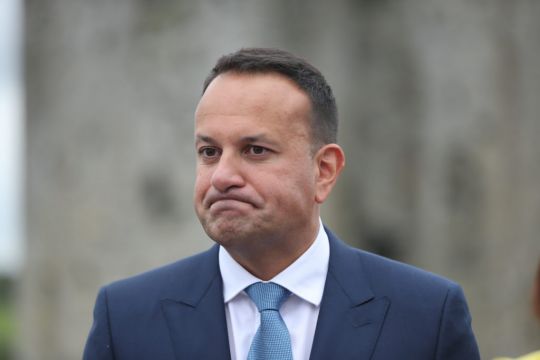Failure to ratify the EU-Canada trade deal CETA would be an “own goal” for Ireland, Tánaiste Leo Varadkar has said.
He told an Oireachtas committee that rejection of the agreement would send out “the wrong message to the world” that Ireland’s commitment to free trade is “waning.”
The Minister for Enterprise also brushed off concerns that the establishment of an investment court system (ICS) under the treaty would make it easier for corporations to sue governments and could stifle policy-making decisions.
Dáil votes to ratify the controversial deal were postponed in December 2020 and February this year, amid fears it could cause a split in coalition partners the Green Party over environmental concerns.
Mr Varadkar said: “I don’t want ratification delayed and drifting indefinitely and for Ireland to stand by and watch other EU member states ratify it ahead of us, as the majority have already.
“I think that would send out the wrong message to the world. One of a waning commitment to trade and free enterprise in Ireland, which would have negative consequences for investment and employment.
“Ireland should be a leader in Europe and the first mover when it comes to free trade, in my view.”
Vote date
Appearing before the Oireachtas committee on Enterprise, Trade and Employment, Mr Varadkar declined to give a date for a new Dáil vote on the agreement.
But he welcomed a recent High Court ruling which dismissed a challenge brought by Green party TD Patrick Costello that aspects of the deal were unconstitutional.
He defended the introduction of the ICS as a dispute resolution mechanism, in response to Opposition TDs’ claims that it will be a court that will favour corporations over the interests of ordinary citizens.
“I think it’s important to point out that this is something that we as the European Union looked for in negotiations and wanted included. It’s not something being imposed on us by anybody else,” he said.
“In relation to ICS, I must emphasise the rights of governments to regulate in the public interest is paramount and I believe this is fully protected under the terms of the agreement.”
Mr Varadkar said it would only arise if Canadian companies were discriminated against, or treated differently to EU companies, and the risk of awards being made against the Irish state “could be considered negligible”.
He added: “Under the ICS, states could never be forced to change legislation, only to pay fair compensation in cases where an investor is deemed to have been treated unfairly, under the specific grounds detailed.
The Táiniste told the Trade & Enterprise Committee in his opening statement that there would be no charge to the State under #CETA but was forced to correct the record when challenged by @paul_gavan. Ireland is of course exposed to costs in the Investor Courts if sued. #StopCETA
— Lynn Boylan 🍷📖🐾 (@LNBDublin) September 22, 2021
“An investor cannot be given compensation just because they’ve lost profits or suffered economic loss or costs.”
But Opposition TDs raised concerns of a “regulatory chill”, where legislation is not brought forward because of the threat of litigation.
Sinn Féin TD Louise O’Reilly said: “I don’t think it’s right or sensible to solidify a situation whereby corporations can sue national governments.
“A special court for corporations will, I believe, act as a major deterrent for governments in passing laws that might benefit citizens, but may not benefit corporations.
“I think it will have a chilling effect on the likelihood of those laws going through because there is a likelihood that the Government will be sued, and sued for hundreds and hundreds of millions of euros in some instances.
“Sued by big global multinational corporations with very, very deep pockets.
“We don’t want a situation whereby, let’s say we as a Government wants to tax vulture funds, and it’s a case of ‘Well, sorry lads, can’t do that, we might get sued.'”
People Before Profit TD Paul Murphy described the ICS as a “parallel justice system, just for corporations”.
Mr Murphy said property investment firm IRES Reits, which is owned by a Canadian company and has a broad property portfolio in Ireland, could use the court to oppose future efforts to introduce rent controls.
Leo Varadkar admitted to me in Committee that if we ratify CETA, the Candian company which owns IRES REIT could sue the Irish state in a special investor court system if we introduce further rent controls.
If that's not a reason to reject CETA, I don't know what is.— Paul Murphy 🏳️⚧️ (@paulmurphy_TD) September 22, 2021
He said: “If we do that, we may be sued for indirect expropriation by the company that owns IRES Reit in the investor court system.
“It will be used precisely for regulatory chill, to say that our hands are tied, we can’t do that because we’ll be interfering, and we will be engaging in indirect expropriation. And indirect expropriation is defined extremely broadly.”

Mr Varadkar replied: “Would there have to be compensation in those circumstances? I think any company could argue that, not just a Canadian company like IRES.
“Any company could argue in such a scenario that this represents confiscation or expropriation and that case would have to be heard.
“Whether it’s Canadian or not, I think, is not the point.”







